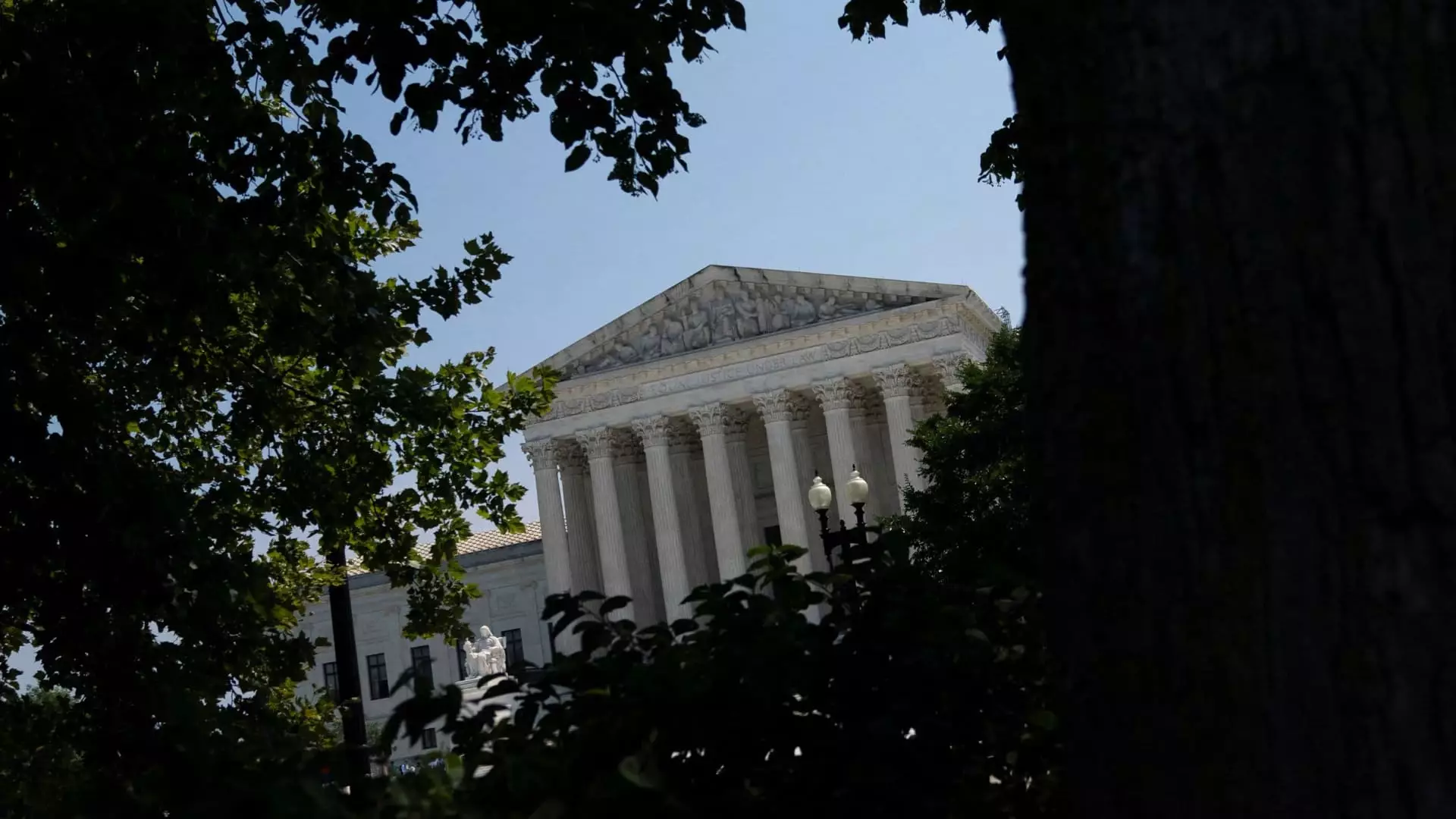The recent decision by the United States Supreme Court to permit the enforcement of the Corporate Transparency Act (CTA) marks a significant moment in the realm of financial regulation and corporate responsibility. This ruling comes in response to a legal challenge that sought to halt the law’s implementation, which aims to illuminate the often-hidden identities behind corporate entities. By mandating that corporations and limited liability companies (LLCs) disclose their beneficial owners to the Treasury Department, the law seeks to curb money laundering and financial crimes that have increasingly plagued the United States’ financial landscapes.
At the heart of the controversy is a nationwide injunction issued by U.S. District Judge Amos Mazzant in Texas, which the Supreme Court temporarily stayed. Mazzant’s ruling suggested that Congress overstepped its constitutional bounds with the CTA, deeming it a “quasi-Orwellian statute” and claiming it possibly infringed upon states’ rights under the 10th Amendment. This assertion reflects a broader ideological struggle regarding federal authority versus state sovereignty—an ongoing debate in American legal and political discourse.
The pushback against the CTA was primarily spearheaded by the National Federation of Independent Business (NFIB) and several small businesses. Their challenge, grounded in concerns about federal overreach and regulatory burdens, illustrates a significant tension between federal initiatives aimed at enhancing financial transparency and the interests of smaller entities worried about compliance costs and complications.
In considering this case, the Supreme Court was presented with arguments from the Biden administration that highlighted the importance of the law in combating a range of financial crimes, including money laundering, tax fraud, and financing terrorism. Solicitor General Elizabeth Prelogar emphasized the necessity of the act’s reporting requirements for the effectiveness of law enforcement and regulatory bodies. The Court’s decision to lift the injunction underlines its recognition of congressional powers under the Commerce Clause, which grants Congress authority to regulate economic activities that have a substantial effect on interstate commerce.
This ruling represents a significant endorsement of the federal government’s role in regulating corporate actions, especially in an era where financial crimes have become increasingly sophisticated and prevalent. The implications of this decision are profound, as it allows the government to access crucial data about the individuals who actually control corporations—often referred to as the “beneficial owners.”
While supporters of the CTA laud its potential to enhance transparency and accountability, critics from the small business sector argue that the law imposes undue burdens. They contend that the costs of compliance, in terms of both time and resources, could be particularly burdensome for small businesses that may lack legal and financial infrastructure. The fear of bureaucratic red tape and additional reporting requirements looms large for many business owners, particularly those navigating the challenges of recovery in a post-pandemic economy.
However, it is essential to recognize that the motivations behind the CTA are not merely punitive; they are fundamentally about protecting the integrity of financial systems. As unlawful activities increasingly exploit loopholes in corporate structures, transparency in ownership can deter illicit activities and promote a cleaner business environment. The challenge lies in balancing regulatory requirements with the operational realities of small businesses.
As enforcement of the Corporate Transparency Act progresses, all eyes will be watching its effects on compliance, crime rates, and the business landscape. Will the law succeed in generating the intended transparency, or will it face further legal challenges that could delay its implementation? The outcome will hinge not only on the legal battles but also on the broader societal evolution in attitudes toward corporate responsibility and accountability.
The Supreme Court’s recent ruling echoes a commitment to uphold the principles of transparency that underpin a healthy economy. As the landscape of corporate law continues to evolve, the rigorous debate surrounding governmental oversight and the rights of businesses will undoubtedly remain at the forefront of public discourse. The challenge now lies in ensuring that regulations effectively deter financial crimes while supporting the entrepreneurial spirits that drive the nation’s economy.


Leave a Reply